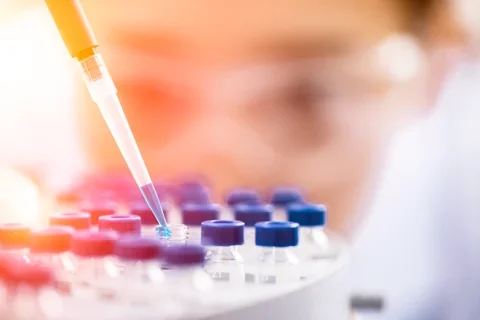Research
The Mary S. Easton Center for Alzheimer’s Research and Care at UCLA (UCLA Easton Center) is a comprehensive research center focused on Alzheimer’s disease (AD) and other dementias. The theme of the center is the therapeutic imperative, focusing on the overwhelming need for earlier (pre-dementia) diagnosis and new therapeutic agents that slow the course of Alzheimer’s disease and other dementias. Included in this theme is a basic science study of the basic brain processes involved in AD, animal models of AD, clinical research of biomarkers for these diseases, diagnostic research, and clinical trials of new medications.
The goals of each division of the UCLA Easton Center align with the therapeutic imperative under the general administration of Jason Hinman, MD, PhD. In this exciting time, we believe that every day brings us closer to new treatments for AD. The partnership provided by Mr. Easton and other supporters has become critical to accomplishing the goals of the therapeutic imperative. Without these contributions, as well as the invaluable contributions made by our research participants, we could not continue to expand our knowledge of this disease. We believe that, together, our team is making a difference.

California Alzheimer’s Disease Centers
Learn more about the CADC
Kagan Clinical Trials Program
See all clinical trialsResearch spotlights in the UCLA Easton Center
Sidell-Kagan Alzheimer’s Treatment Development Program
The long-standing clinical trials program is supported by the Sidell-Kagan Foundation. This branch of the center will continue to test new investigational therapies for AD as they progress through clinical development.
Jim Easton Consortium for Alzheimer’s Drug Discovery and Biomarker Development
A separate research program funded by our generous benefactor, Mr. Jim Easton. This consortium supports the work of several investigators specifically to develop treatments for AD. The consortium funds the work of biologists studying molecular protein folding, research to investigate the utility of new agents in animal models, and human research in AD patients.